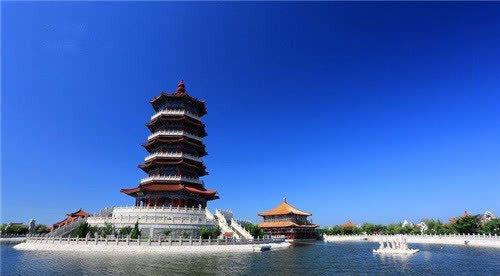In the history of Shandong, there have been many great people, Jiang Ziya, Fang Xuanling, Guan Zhong, Yan Bao... Many of the very famous noble ministers are almost all from Shandong, and it is reasonable to say that this place should not be without an emperor. From the perspective of feng shui, many people think that the luck of this place in Shandong has been exhausted, and from the unique terrain of Shandong, it can be seen that it belongs to the dragon's tail rather than the dragon's head, and the area is easy to attack and difficult to defend, so this place is not conducive to gathering gas and raising troops.

Similarly, we find that many of the kings in the past are in the landlord class, they have a certain amount of financial and material resources and connections, which lays the foundation for their honorable status to become emperors in the future, plus people have always had a very high degree of worship for the emperor, if the emperor is born poor, the identity is generally difficult to convince.
There are so many emperors in history, but there are only a few emperors who are really poor, and Shandong has never been a political and cultural center, and Shandong people have a bold and straightforward personality, so it is difficult for Shandong people to become emperors.
In addition, we know that Confucius, the most famous figure in Shandong, also influenced many people with the Confucian scholarship he promoted. When Confucius first began to propagate his Own Confucianism, few kings could listen to it, because at that time, it was in the Spring and Autumn Period and the Warring States Hundred Schools of Contention, and it was also to make those who had a certain amount of power in the local area feel that they could dominate one side and why they should be loyal to others, so Confucius was not welcomed by everyone at that time.
In the period of Emperor Wu of Han, in order to consolidate his political power, the emperor adopted Confucius's Confucian thought, and the idea of "kings and subjects, fathers and sons" was fully promoted during the period of Emperor Wu of Han, and the highly respected Confucius also had a leap in people's minds for a while. People throughout the dynasty studied Confucianism, especially the Shandong people, who regarded Confucius as their pride and admired the ideas of Confucianism to the extreme.
This kind of thinking has been passed down from generation to generation, so that the people of Shandong have more in mind to defend the family and defend the country and serve the imperial court. We know that the main point of wanting to become an emperor is to be dissatisfied with the current emperor, and these are undoubtedly contrary to their extremely recognized educational ideas for the People of Shandong.
But the emperor does not mean that Shandong is not a place where the Crouching Tiger, the Hidden Dragon, imagine if everyone wants to be an emperor and no one is a courtier, then neither the imperial court nor a single family will be stable, and the reason why people can unite together is because everyone has a different position for themselves, and when people with different identities stand on their own stand and consider things, the effect we finally achieve can be closer to perfection.
Throughout history, we know that the people who have the talent of the emperor are definitely not just the number of people who really become emperors, there are many people who also covet the imperial power, but due to various reasons, the rebellion has failed, these people cannot say that they do not have the strength of the emperor, only that they are unlucky, and they have not found the right time and enough strength to confront the rulers at that time.
Moreover, no matter which emperor reigns, there must be a clause in his ruling philosophy of cherishing talents, because we find that only those emperors who really understand political power and political thought can recognize that these capable ministers will play a crucial role in consolidating their land power.
And even if those arrogant emperors became the proud sons of heaven for a while by virtue of their fortunes, we find that his reign was extremely short, and the people's livelihood when he was in power would not be much better.
That being said, shandong, as a large province with a population of more than 100 million and a large number of talents in China, has not been able to give birth to an emperor from ancient times to the present, which is really regrettable.